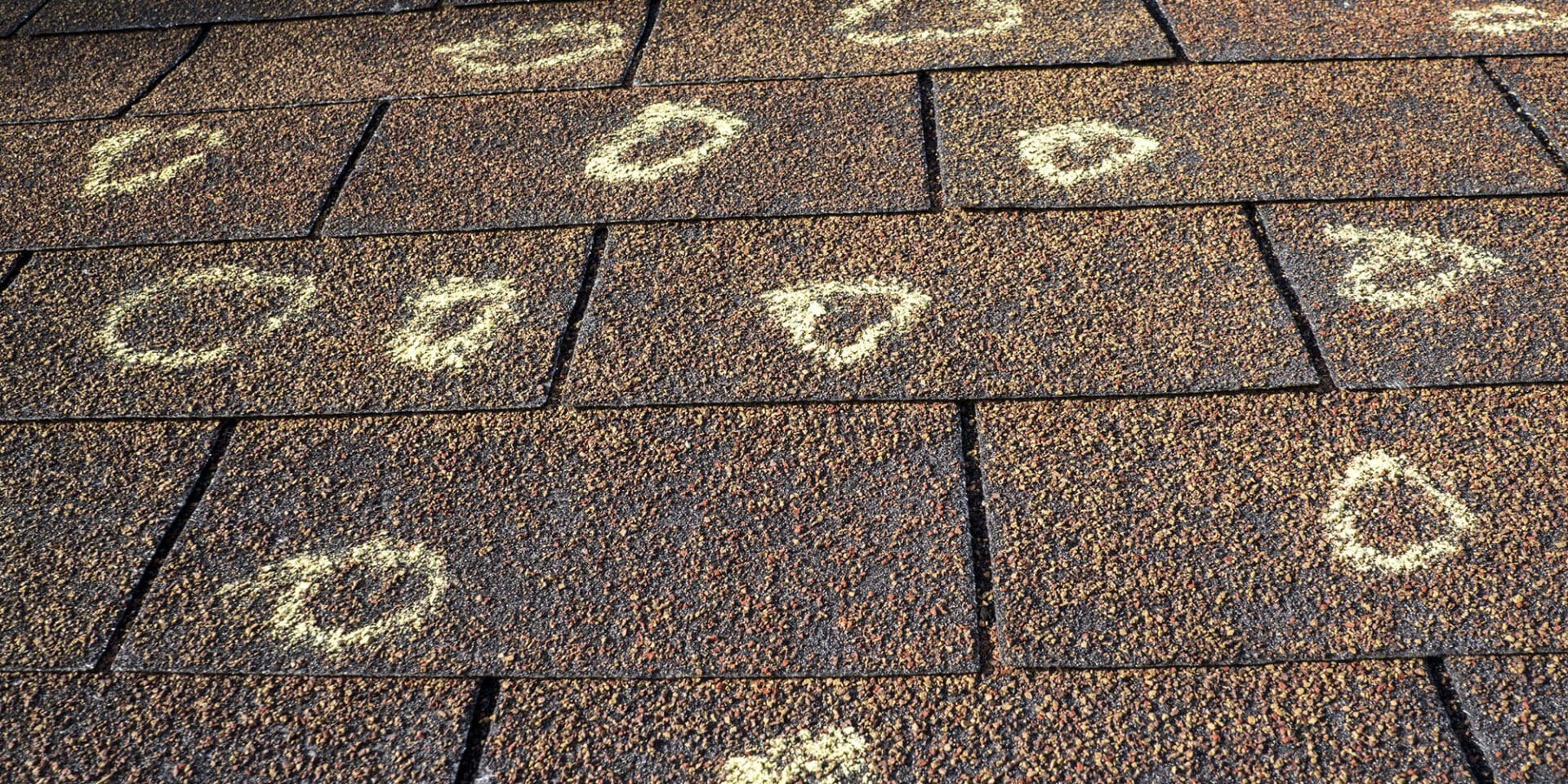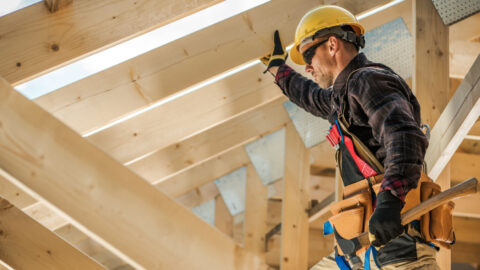Florida’s climate, notorious for hurricanes, sweltering summers, and heavy rain, demands the utmost roofing expertise. Unfortunately, the market is saturated with companies that can’t always deliver as promised. But how do you sift through the noise and distinguish reputable roofers from those to avoid? Here’s your guide.
Why Roofing Expertise is Essential in Florida
Florida is no stranger to severe weather. Hurricanes, tornados, and water spouts can all do serious damage to your roof. So while the aesthetics of your roof are important for your home’s value, you also need to make sure that you’re investing in a quality product installed by expert crews.
And John Hogan Roofing has tips on how to spot scammers that want to take your money and leave you with a shoddy roof.
Spotting Roofers to Avoid
The integrity of your roof directly impacts the safety and value of your home or commercial building. Therefore, choosing the right roofing company in Florida is a decision that warrants careful consideration. Here’s an expanded guide on red flags to watch out for when scouting for roofing services:
1. No Proof of License or Insurance:
In Florida, like many states, roofing companies are mandated by law to possess specific licenses and insurance to legally operate. These are designed to protect both the homeowner and the business.
- Licensing: This ensures that the roofer has met certain standards of training and knowledge. Without a license, there’s no official way to verify their competency.
- Insurance: This is essential for two main reasons. Firstly, it covers any potential damages to your property during the roofing process. Secondly, if a worker is injured on your property and the company doesn’t have insurance, you could be held liable.
Always request to see physical proof, and don’t just take their word for it. Some less scrupulous companies might claim they have these credentials when they do not.
2. Too-Good-To-Be-True Estimates:

Everyone is on the hunt for a bargain. However, when it comes to something as crucial as roofing, especially in a weather-challenged state like Florida, a suspiciously low estimate should raise eyebrows. Watch out for:
- Hidden Costs: Some companies might offer a low estimate upfront but later bombard you with unexpected costs.
- Subpar Materials: A reduced estimate might mean the company plans to use lower-quality materials, which won’t fare well in Florida’s extreme conditions.
- Shortcuts: Cost-cutting can also mean skipping essential steps in the roofing process or rushing through a job, leading to substandard work.
Always compare quotes from different service providers to get a sense of the market average. If an estimate is significantly below this average, delve deeper into why that is. A reputable Florida roofing company will be happy to answer all your questions.
3. Lack of Local References & Roofing Companies to Avoid:
A reputable roofer should have a trail of satisfied customers in their wake. Local references are particularly important in Florida due to the state’s unique climatic challenges. Storm chasers have caused a lot of headaches for homeowners in Florida, so make sure to only entrust your roof to local professionals.
Make sure to look for local reviewers in your area. And don’t settle for one or two—you need prof that you can trust these people with your home’s safety.
If a company is reluctant to provide references or offers only out-of-state references, it could indicate a lack of experience in your area or an attempt to hide subpar work.
4. High-Pressure Sales Tactics:
Roofing decisions should be made after thorough research and consideration, not under pressure.
- Limited Time Offers: Beware of companies that push “limited-time offers” that force you into making hasty decisions.
- Aggressive Upselling: While a company might genuinely recommend certain upgrades or changes, be cautious if they’re persistently pushing for more expensive options without clear justifications.
Your comfort and the feeling of being informed should always be at the forefront of any discussions with potential roofers.
While Florida’s roofing market might be vast, understanding these red flags can guide you to make a choice that ensures the safety, longevity, and aesthetic appeal of your property’s roof.
Frequently Asked Questions on How to Identify Roofing Companies to Avoid in Florida
Are All Low-Cost Estimates a Red Flag?
It’s a common concern: You receive an estimate that’s surprisingly low, and you immediately wonder if it’s too good to be true. In the roofing industry, particularly in Florida, costs can range significantly depending on the materials used, labor costs, and the scale of the project. While a low estimate might grab your attention, it’s essential to understand why it’s priced as such.
Several factors can lead to a low estimate:
- Economies of Scale: A well-established company might have better relationships with suppliers, enabling them to source materials at a lower cost.
- Special Promotions: Sometimes, companies might offer promotional rates to secure more projects or move excess stock.
- Overlooking Crucial Aspects: This is where concerns arise. If a company has missed out on considering certain aspects of a roofing project, the estimate may be low. This could translate to hidden costs later or subpar work.
To ensure you’re making an informed decision, always gather multiple estimates. This way, you can understand the average cost for your project and recognize outliers, whether surprisingly high or low.
What’s the Most Durable Roofing Material for Florida’s Weather?

Florida’s weather is famously unpredictable. From scorching sun to sudden downpours and hurricanes, roofing materials here face a true test of endurance. One of the most resilient materials, suitable for both residential and commercial properties, is metal roofing.
Several reasons make metal a top contender:
- Durability: Metal roofs can last 40 to 70 years, depending on the material, compared to asphalt roofing’s 12 to 20 years.
- Safety: They won’t spark and ignite into flames during a wildfire or lightning strike.
- Energy Efficiency: Metal roofs reflect solar rays, reducing cooling costs by 10% to 25%.
Other options like tile and slate are also durable but might come with higher roofing material costs. It’s essential to balance durability with budget considerations and aesthetic preferences.
Can I Trust Online Reviews?
In today’s digital age, online reviews have become the go-to for many individuals looking to procure a service or purchase a product. And while these reviews can provide valuable insights into a company’s work ethic, quality, and customer satisfaction, they should be taken with a pinch of salt.
Here’s why:
- Bias and Exaggeration: Some reviews might be overly positive or negative due to personal biases. A single bad experience can lead to a scathing review, even if the company generally has a stellar track record.
- Fake Reviews: It’s an open secret that some businesses might manipulate reviews, posting positive feedback about themselves or negative ones about competitors.
- Lack of Context: Reviews might lack context, making it hard to discern the specifics of the project, the challenges faced, and the solutions provided.
Always supplement online reviews with direct conversations. Speak with the roofing company, ask them specific questions, and request local references. By doing this due diligence, you’ll get a clearer picture, allowing you to make a decision that you’re comfortable with.

Why John Hogan Roofing Company Stands Out
Now that we’ve covered how to spot scam roofers, let’s discuss a company that has set an example in the roofing industry in Florida: John Hogan Roofing. With extensive experience in both residential and commercial roofing, we’ve earned a reputation for quality and integrity.
Our commitment to using the best materials, coupled with their transparent approach to roofing material costs, makes us a preferred choice. Moreover, our team is trained to offer both roof replacement and roof repair services that stand the test of time and Florida’s unpredictable weather.
When you’re investing in something as crucial as a roof, especially in a state like Florida, settling for anything less than expertise is not an option. And, as showcased, John Hogan Roofing Company ensures you don’t have to.
Roofing decisions, especially in Florida, are too vital to be left to chance. By understanding the indicators of roofers to avoid and leaning on the experience of trusted names like John Hogan Roofing Company, you can ensure the safety and longevity of your property. Whether it’s roof repair, replacement, or understanding the roofing material costs for residential or commercial properties, making an informed choice is the first step to a lasting roof.
Roofing Companies to Avoid in Florida – The Video
HAVE THE WORK COMPLETED RIGHT THE FIRST TIME
You May Also Like:
A Homeowner’s Guide to the Florida PACE Program for Roof Replacement
In Florida, a strong, reliable roof isn’t a luxury—it’s a necessity. But with the high cost of replacement, many homeowners are forced to delay this critical work, putting their homes at risk. While options like home equity loans or personal loans exist, there is another powerful financing tool designed specifically for Florida homeowners: the PACE…
Read MoreBenefits of Integrating Solar Panels with Your Roof in Florida
In the Sunshine State, it’s no secret that the sun shines bright nearly all year long. Florida is not only a paradise for beach lovers but also an ideal location for harnessing solar energy. If you’re a homeowner in Florida, you’ve probably considered integrating solar panels into your home, especially as the state continues to…
Read More15 Crucial Questions to Ask Before Hiring a Roofing Contractor in Florida
In Florida, where hurricanes, heavy rain, and intense sunshine are part of everyday life, your roof is more than just a cover — it’s your home’s first line of defense. So, when it comes time for a roof repair or full replacement, hiring the right roofing contractor isn’t just important — it’s essential. Whether you’re…
Read More



